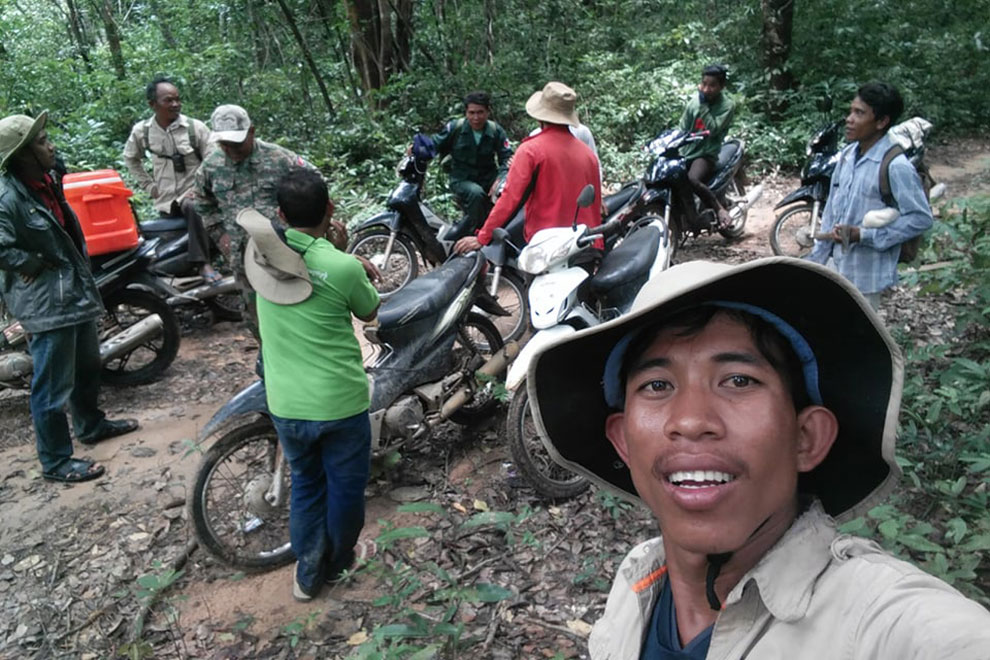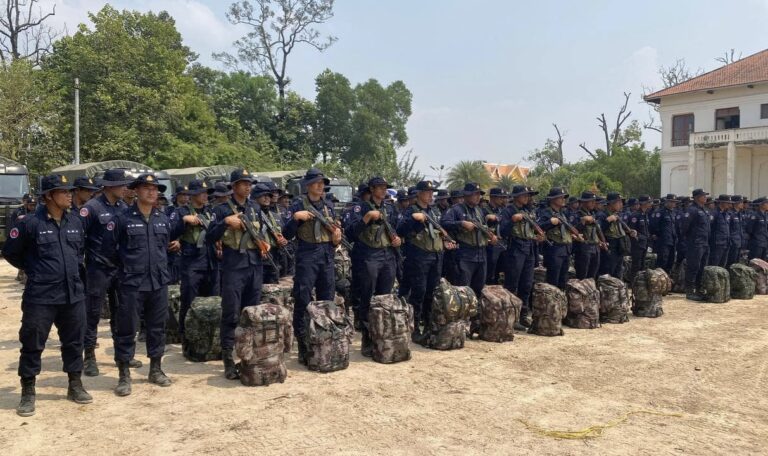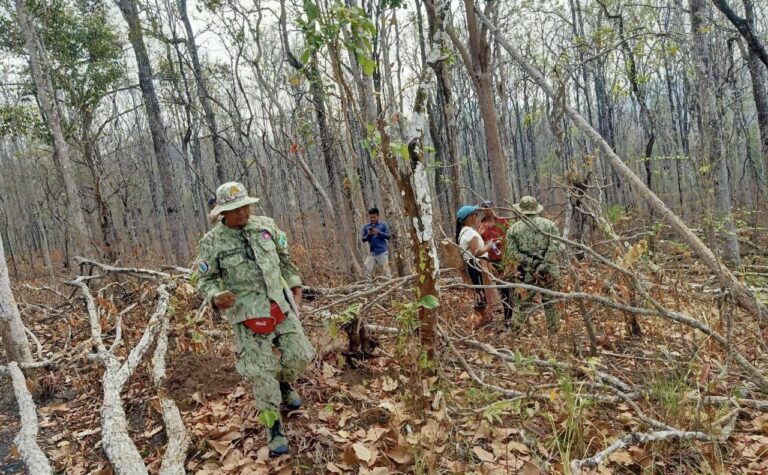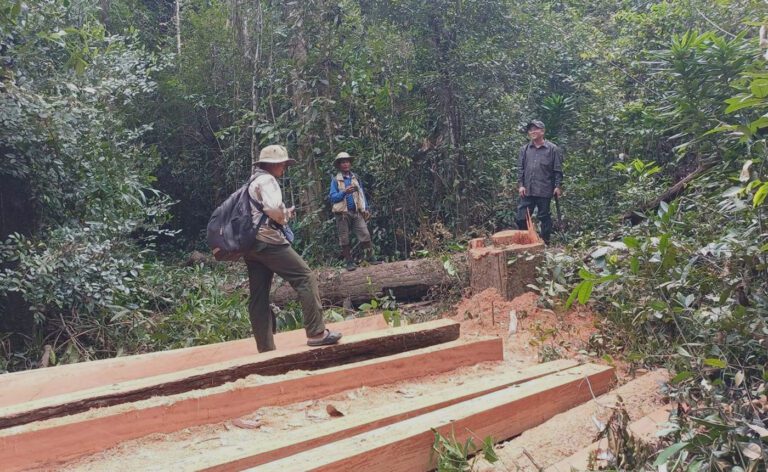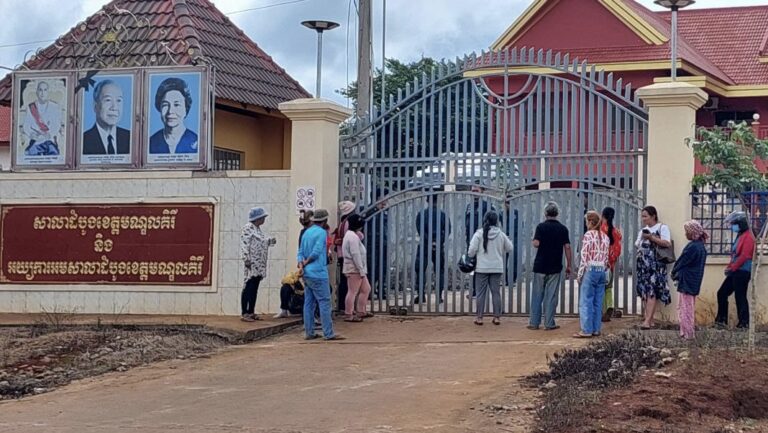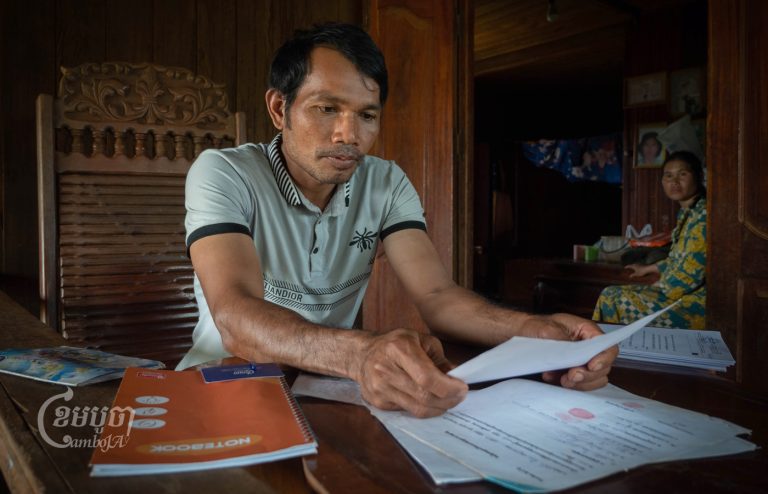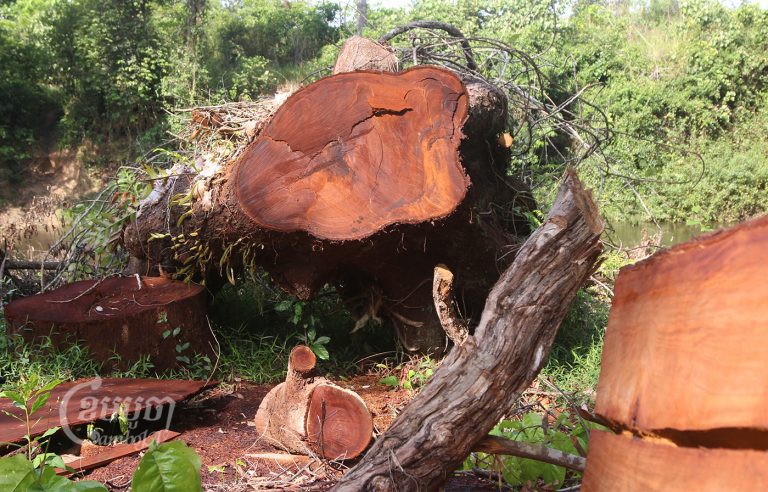MONDULKIRI — Heng Sros rides his motorbike across Mondulkiri province, through the Phnom Prich Wildlife Sanctuary, to the Lumphat Wildlife Sanctuary, and finally into the Srepok Wildlife Sanctuary.
Sros, an activist for the Cambodia Human Rights Task Force, hasn’t let up on his investigations on illegal logging, though he says his findings are consistently ignored by authorities.
Things have quieted down in Phnom Prich recently, he says. Just weeks ago, the roads were busy with local people carting timber on the backs of their motorbikes to be smuggled through an economic land concession and into Vietnam, Sros says.
But the alleged logging mastermind, well-known tycoon Soeng Sam Ol, was arrested in July and more than 40 of his trucks confiscated. Forestry Administration officials thought to be complicit in the trade have been summoned to court.

While walking down a muddy road to take pictures of wood in the protected area, Sros explains that companies in Phnom Prich hire people to cut down trees from all over the country to bring to their concessions. With cooperation from envirionment officials, they then receive permits to export the timber to Vietnam, he claims.
“Environment officials, forestry officials, military police in Mondulkiri — all collude with loggers,” he says. “Without their permission, none of the okhna could be involved in logging.”
Laundering timber was the sole purpose of the economic land concessions in the area, he claims.
“The companies that received the economic land concessions from the government have done nothing to develop in that area; they’ve only done logging,” he says.
Ouch Leng, chairman of the Cambodia Human Rights Task Force, says the deforestation began with the granting of concessions in 2005. The companies received permits for wood processing, and it has sparked massive deforestation in nearby protected areas, he says.
According to NGO reports from 2015, the government has doled out more than 2.1 million hectares of Cambodian land to investors as concessions.
Sam Ol’s company is merely the tip of the iceberg, Leng says.
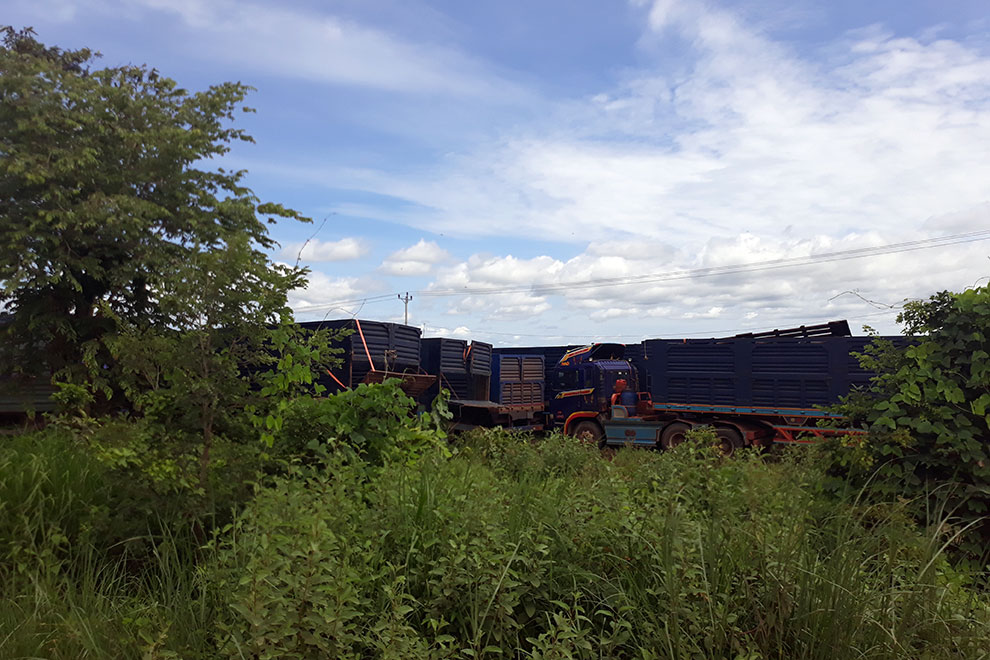
“This tycoon’s company has run a business collecting timber for many years,” he says. “But there are also other timber tycoons in Cambodia going into protected areas.”
The government’s recent crackdown, announced by the National Anti-Deforestation Committee in early July, must not stop at disrupting just one network of operations, Leng says. It should go after everyone involved, he says.
“If the crackdown is limited to one oknha, it means it’s just a game to extort money from them,” Leng says. “For there to be justice, they must crack down on all and stop issuing any licenses.”
The committee, which spearheaded the arrest of Sam Ol on July 9, said on its website on Saturday that three provincial officials had been summoned for court questioning: Lumphat Wildlife Sanctuary chief Han Sokhon and provincial Forestry Administration officials Saro Ratana and Hong Vanne.
According to a recent report by the Environmental Investiagtion Agency, more than 1 million cubic meters of illegal timber has been exported from Cambodia’s northeast to Vietnam.
The U.K.-based NGO’s investigation, “Serial Offender,” from May, says investigators visited the northeast during the 2017-2018 dry season to see whether illegal timber trading had abated, but discovered three areas of substantial ongoing trafficking.
The three areas were Virachey National Park in Ratanakkiri province, the forests surrounding the Lower Sesan 2 dam in Stung Treng province, and the Phnom Prich Wildlife Sanctuary, it says.
“Don’t kill the hens,” the armed forces’ deputy commander-in-chief, Sao Sokha, says, echoing the words of Prime Minister Hun Sen.
“We should change our habit of destroying ourselves, “ he says, arguing that the destruction of Cambodia’s natural resources amounted merely to short-term gain. “There are many occupations that can feed our lives.”
Sokha says the latest crackdown is genuine; whether rich or poor, those involved in timber trafficking will be prosecuted.
Longtime Cambodia conservationist, Marcus Hardtke, however, is skeptical. The country has seen this sort of crackdown before, against the same people, in the same location — and it turned out that they were mere negotiations about the loot, he says.
“No serious steps were taken to protect the forest by the task force at that time,” he says. “Now the same gangsters are caught again, after many months of organized illegal logging and smuggling.”
He adds that Sam Ol was caught before, and claims the okhna had managed to buy his way out of trouble and continued logging. So did a handful of other operators in the area, Hardtke says. So what will happen this time?
“The current crackdown seems more serious and it’s good that the task force is going after corrupt and complicit officials too,” he says. “But it’s too early to judge the final results.”
Moreover, the root cause of all the troubles remained: the economic land concessions.
“They are like cancer cells, attacking all surrounding forest,” he says.
Concessions provide a massive loophole for illegal logging and timber laundering. As long as they exist, the task force could conduct a similar crackdown every three months, he says.
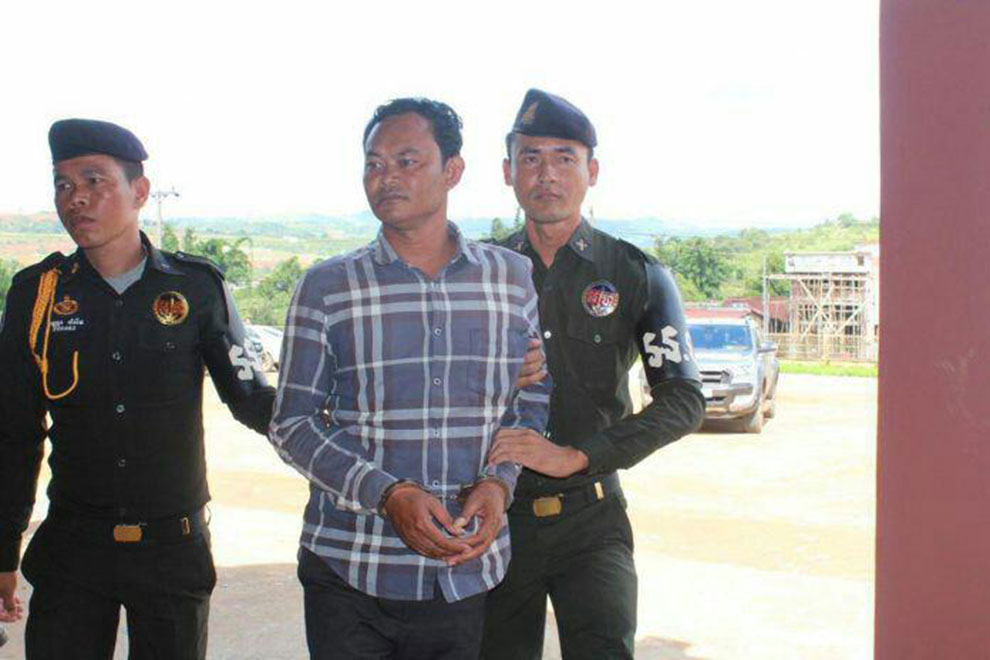
“If the government is serious about forest protection, it would cancel all remaining ELCs in the Eastern Plains–Mondulkiri landscape.”
Envirionment Ministry spokesman Neth Pheaktra says he welcomes the latest crackdown, but argues rangers and environment ministry officials had always policed forest crimes.
“These measures against illegal logging were taken by competent authorities at all times,” he says.
Pheaktra adds that, over last five years, the government has already shut down large-scale illegal logging. This year the net was simply expanded to catch medium- and small-scale loggers, he says.
The Forestry Administration, meanwhile, claims it has pursued 8,600 cases against forestry crimes between 2014 and 2018, with 5,716 of the cases sent to court. It confiscated tens of thousands of cubic meters of illegal sawn wood and logs, it says.
But the corruption runs deep, warns Sros, the activist.
“I want to see these actions continue forever, and more corrupt officials who worked with loggers arrested nationwide — not only in my Mondulkiri province.”


